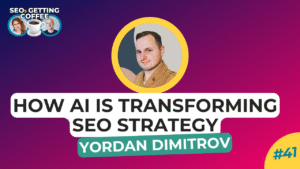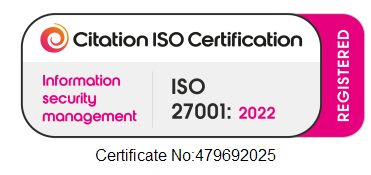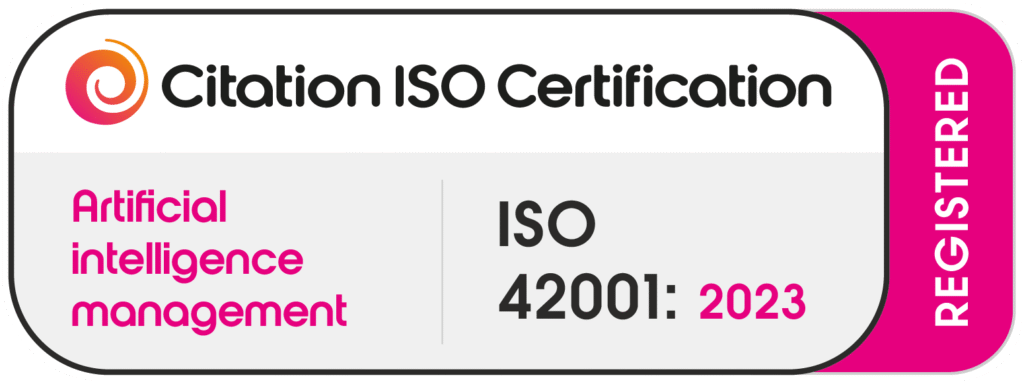Everyone can be affected by imposter syndrome. For those in the SEO world in particular, it’s a familiar feeling, especially given the rapidly evolving nature of the industry. In this episode of SEOs Getting Coffee, Sean and Emina invited a special guest to talk about this delicate topic: Franzi Dietrich, an experienced SEO professional who has been working in the industry since 2011 and recently took the plunge into freelancing.
Despite a wealth of experience, Franzi, like many, struggled with feelings of self-doubt and the fear of not being ‘good enough’.
Keep on reading or watch the full episode of the podcast to find out her invaluable advice on how to overcome imposter syndrome in the dynamic and competitive SEO industry.
Watch Video
Imposter Syndrome in SEO | SEOs Getting Coffee - Episode #28
Understanding Imposter Syndrome
The episode kicks off with the definition of imposter syndrome and how to recognise it. Franzi describes it as a fear that often holds you back, even when others see your potential. is a pervasive feeling of self-doubt and insecurity despite evidence of success. It’s the fear that, no matter how much you achieve, you’re not truly competent or knowledgeable, and it’s only a matter of time before others realise it. This syndrome leads to anxiety and the constant worry of being “exposed” as a fraud. But as the saying goes, sometimes life gives you a nudge (or a shove) in the right direction. For Franzi, that shove came in the form of getting laid off, which led her to take the plunge into freelancing.
Sean Carroll adds that this fear often stems from the pressure to avoid failure and mistakes. He acknowledges that nobody likes to fail, but he emphasises that making mistakes is part of the learning process. Sean suggests that embracing these errors and reframing them as opportunities for growth can be crucial in overcoming imposter syndrome.
Imposter Syndrome in the SEO Industry: Why It’s So Common?
Franzi believes that many people in the industry suffer from imposter syndrome because SEO is a unique field with no clear-cut educational path, making it ripe for imposter syndrome. Franzi pointed out that the lack of formal education and the constant changes in SEO algorithms can make anyone feel like they’re perpetually behind. In her opinion another plausible explanation is that, historically, the industry has seen a prominent presence of assertive voices, often from male professionals, at conferences and in publications. This dynamic can sometimes create challenges for others seeking to establish their presence in the field.
Franzi also highlighted the overwhelming amount of information and the fear of missing out (FOMO) as significant contributors to imposter syndrome. In an industry where a couple of weeks away can mean missing out on major Google updates, it’s easy to feel like you’re constantly playing catch-up.
Emina Demiri-Watson echoes this sentiment, noting how the fast-paced nature of SEO can make professionals feel like they’re constantly behind. She points out that this rapid change, coupled with the pressure to stay current, can significantly contribute to self-doubt and anxiety in the industry.
Strategies to Fight the Imposter Syndrome
Franzi’s journey from self-doubt to self-employment wasn’t easy, but she shared several strategies that helped her along the way:
- Recognise Your Achievements: Writing a resume was a turning point for Franzi. It forced her to confront all the things she had accomplished, helping to rebuild her confidence. She also created a business plan, which further solidified her belief in her abilities.
- Stay Informed, Not Overwhelmed: To combat FOMO, Franzi subscribed to relevant newsletters like Women in Tech SEO. This way, she ensured she didn’t miss out on important updates without getting bogged down by information overload.
- Change Your Environment: Franzi emphasised the importance of recognising when it’s not you, but the environment that’s the problem. Toxic workplaces or a lack of diversity can exacerbate imposter syndrome. Sometimes, the best thing you can do is change your surroundings.
- Accept and Act: Accepting that imposter syndrome is normal was key for Franzi. She made a list of the worst things that could happen if she failed, and when she realized that failure wasn’t the end of the world, it became easier to take risks.
- Mentorship and Community: Franzi found support in communities like Women in Tech SEO. Having a mentor or a supportive community can provide guidance, reassurance, and a reality check when you start doubting yourself.
- Document Your Wins: Keeping a journal or a digital record of your successes and positive feedback can be a powerful tool against imposter syndrome. When those feelings of doubt creep in, you can look back and remind yourself of your accomplishments.
Sean highlighted another important aspect, which is the importance of reframing your perspective. Instead of focusing on failures or mistakes, he suggests acknowledging the positives, no matter how small. He compared this to playing football, where focusing on the few good plays instead of all the missed opportunities can drastically change your enjoyment and self-perception.
The Role of Managers in Combating Imposter Syndrome
Franzi also discussed the crucial role managers play in addressing imposter syndrome within their teams. She stressed the importance of managers recognising and celebrating their team’s successes, not just pointing out mistakes. Moreover, understanding that each team member has a unique personality and tailoring support accordingly can make a significant difference.
Emina agrees, noting that managers need to personalise their support to fit the individual needs of their team members. Some people thrive when pushed into the deep end, while others need more gradual encouragement. Recognising these differences and responding appropriately is key to helping employees overcome imposter syndrome.
Room 404: Unrealistic SEO Promises
Time for 404! In this segment, Franzi banished something particularly irksome to Room 404 – those misleading SEO agencies that promise unrealistic results, like ranking on the first page within a week. Such practices not only create false expectations but also contribute to the frustration and disillusionment many SEO professionals feel.
Conclusion
Franzi’s journey is a testament to the fact that imposter syndrome is something many of us face, but it doesn’t have to hold us back. By recognising your achievements, seeking support, and changing your mindset, you can overcome those doubts and continue to grow in your career. Remember, it’s okay to have doubts – what’s important is how you respond to them.
After all, even the most experienced professionals have been there – and come out stronger on the other side.
For more insights and in-depth conversations on the latest in SEO and digital marketing strategies, stay stuned for upcoming episodes of “SEOs Getting Coffee.” Subscribe to our channel for regular updates and expert opinions.
Connect with Franzi Dietrich

SEO Content Strategist | Freelance Content Writer











